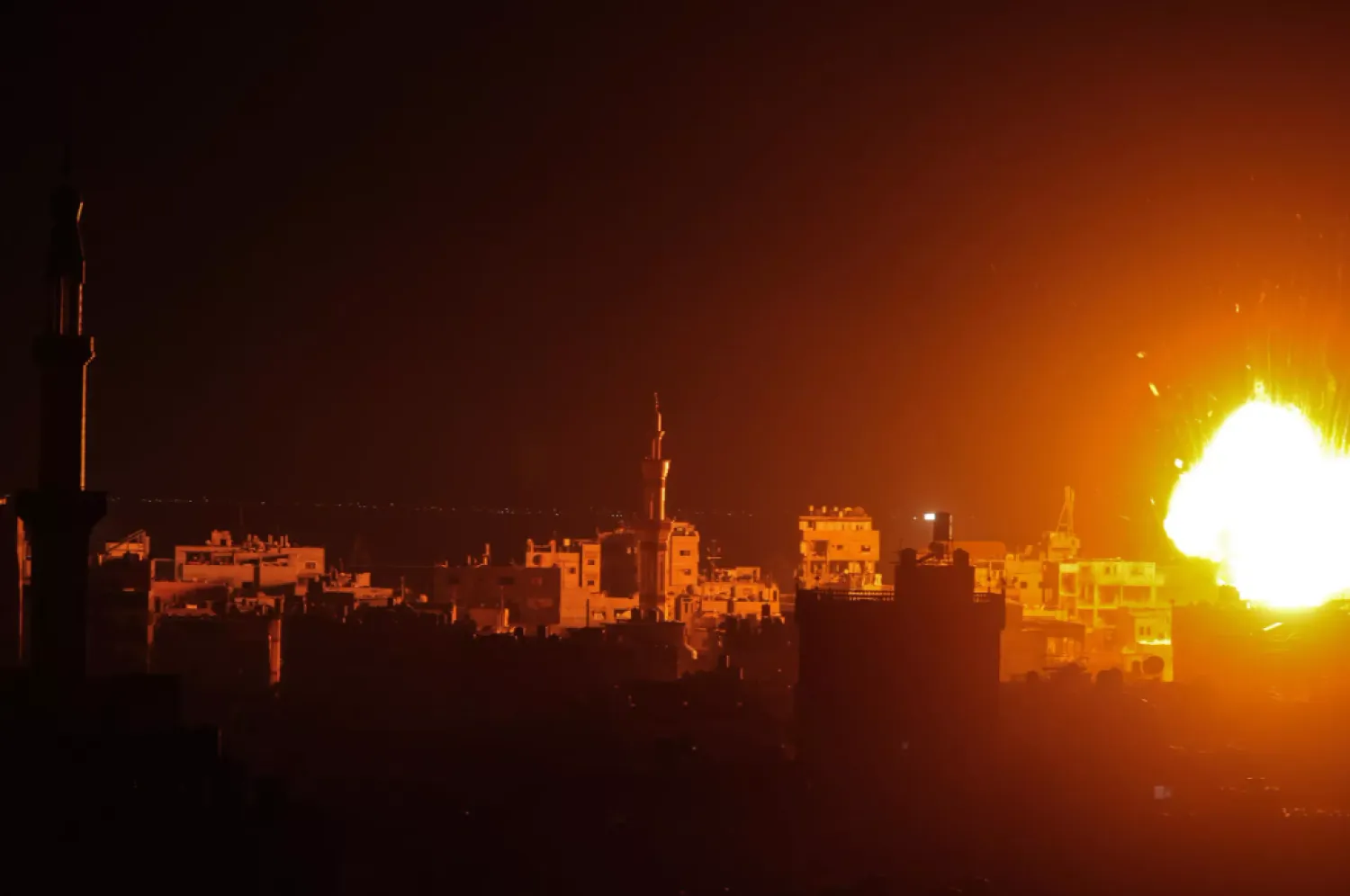The southern Gaza Strip came under intense Israeli bombardment overnight, despite international pressure for an immediate ceasefire in the Palestinian territory where famine is looming.
Besieged Gaza is in desperate need of aid and the United States said it would continue airdrops, despite pleas from Hamas to stop the practice after the group said 18 people had died trying to reach food packages.
A fireball lit up the night sky in the southern city of Rafah, the last remaining urban center in Gaza not to have been attacked by Israeli ground forces. About 1.5 million people are crammed in the area, many having fled south towards the border with Egypt.
The sound of explosions was also heard and smoke was seen rising in Gaza City in the north, where Israeli troops have been attacking the city's largest hospital for more than a week.
The health ministry in Hamas-run Gaza said early Wednesday that 66 people had been killed overnight, including three killed in Israeli air strikes in and around Rafah.
The fighting went on unabated two days after the UN Security Council passed its first resolution calling for an "immediate ceasefire" and urging the release of the roughly 130 hostages Israel says remain in Gaza, including 34 captives who are presumed dead.
Israeli forces have also surrounded two hospitals in Khan Yunis, where the health ministry said 12 people, including some children, were killed in an Israeli strike on a camp for the displaced.
The Palestinian Red Crescent has warned that thousands were trapped in the Nasser hospital in Khan Yunis and "their lives are in danger".
Underscoring the desperation of civilians trapped by the fighting, Hamas has asked donor countries to stop their airdrops after 12 people drowned trying to recover parachuted food aid from the sea off Gaza's Mediterranean coast.
Hamas and the Swiss-based Euro-Med Human Rights Monitor also said another six people were killed in stampedes trying to get aid.
"People are dying just to get a can of tuna," Gaza resident Mohamad al-Sabaawi told AFP, holding a can in his hand after a scramble over an aid package.
Hamas has also demanded that Israel allow more aid trucks to enter the territory, which the United Nations has warned is on the brink of a "man-made famine" after nearly six months of fighting.
The war, triggered by Hamas's unprecedented October 7 attack on Israel, has shattered Gaza's infrastructure and aid agencies say all of its 2.4 million people are now in need of humanitarian help.
The UN children's fund, UNICEF, said vastly more aid must be rushed into Gaza by road rather than by air or sea to avert an "imminent famine".
UNICEF spokesman James Elder said the necessary help was "a matter of kilometres away" in aid-filled trucks waiting across Gaza's southern border with Egypt.
The US National Security Council said in a statement it would continue trying to get aid in by road, but also said it would continue airdrops.
The UN Security Council resolution passed Monday demanded a ceasefire for the remaining two weeks of the Muslim holy month of Ramadan that should lead to a "lasting" truce.









